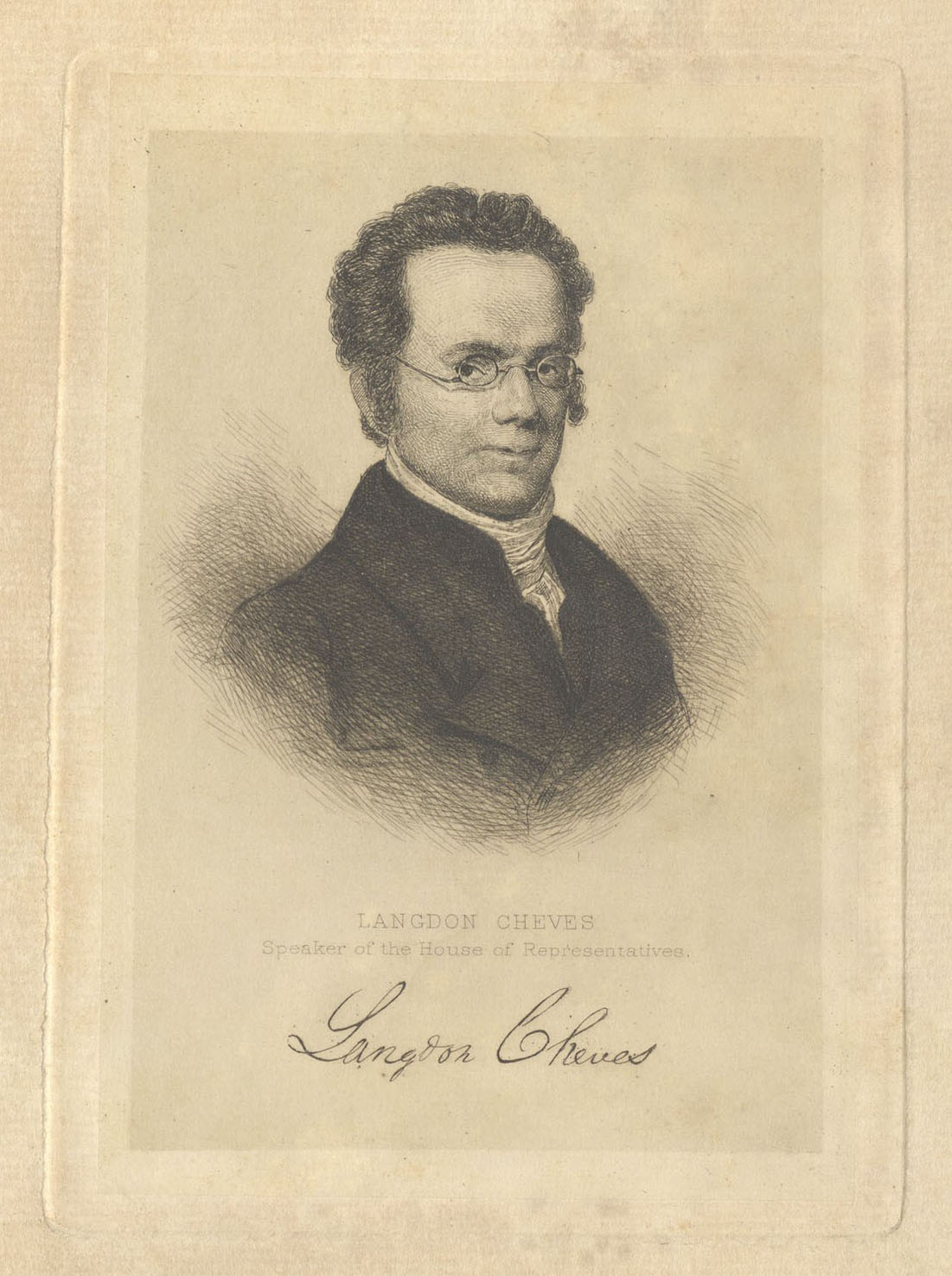
Engraved Portrait of Langdon Cheves. From the Collections of the SC Historical Society.
As of January 4, 2023, only 54 people have served as speaker of the house. The ninth person to do so was a South Carolinian. In January 1814, Henry Clay was appointed to a peace commission to end the war with Great Britain. That left a vacancy in the role of speaker of the U.S. House and South Carolina’s Langdon Cheves was elected to fill it. Having served as a state representative and state attorney general, Cheves was elected to the U.S. House in 1810. He served there along with William Lowndes, David R. Williams, and John C. Calhoun. All four South Carolinians were well-known “War Hawks” who supported the conflict with Great Britain.
Langdon Cheves was born in Abbeville District in 1776. He attended private schools and was an avid scholar. He read law in Charleston and practiced statewide. In 1806 he married Mary Elizabeth Dulles and they eventually had fourteen children. Outspoken in his political opinions, Cheves was a fierce Jeffersonian Republican. As a U.S. Congressman, he worked to retain Clay as speaker of the House in 1812 and was appointed chairman of the Ways and Means Committee. Cheves was also a prominent member of the Naval Affairs Committee, where he oversaw several important military appropriations during the War of 1812.
After his service as speaker of the House, Cheves turned down an offer from President Madison to join the cabinet as Secretary of the Treasury. He returned to Charleston and was appointed to the South Carolina Court of Appeals in 1816. Three years later President Monroe appointed him president of the Second National Bank of the U.S. Cheves launched a series of strict measures including higher interest rates, fewer loans, and a reduction of bank notes. Some scholars claim those actions may have worsened the depression that followed the Panic of 1819, but others point out that the measures helped to stabilize the bank. Cheves resigned from the National Bank position in 1822 and was appointed chief commissioner of war claims under the terms of the Treaty of Ghent. While serving in these appointments, he resided in Philadelphia and Lancaster, Pennsylvania.
Cheves returned to South Carolina in 1829. While he supported the unionist view during the Nullification Crisis, by 1850 he was an outspoken proponent of southern rights. When he heard of the Compromise of 1850, Cheves announced, “The Rubicon is passed–the Union is already dissolved.” He insisted that southerners must “unite” to protect their “slave property.” By the end of his life, Cheves believed that secession was the only solution for the South. He continued to practice law and manage his rice plantation until his death in June 1857. Langdon Cheves is buried in Magnolia Cemetery, Charleston.